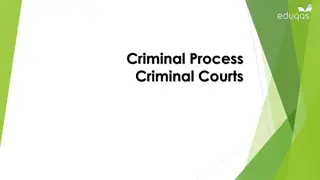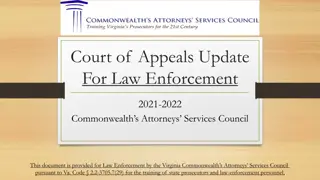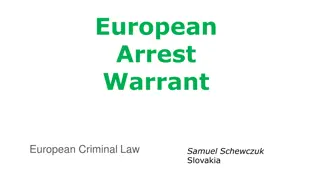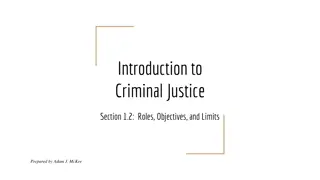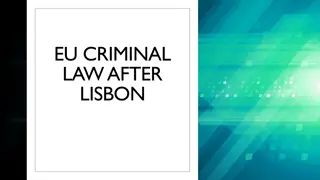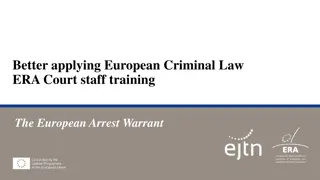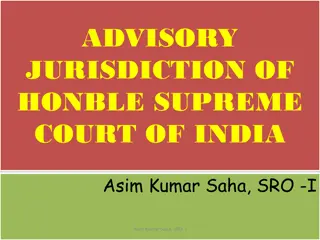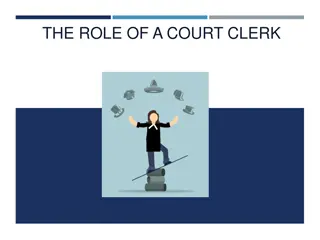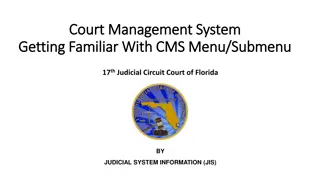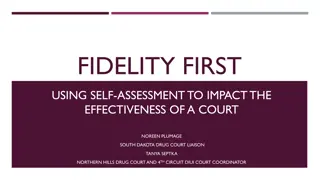European Criminal Law Training: Mutual Recognition in Court
Better applying European Criminal Law Training for court staff through the Council Framework Decision 2009/829/JHA, which aims to ensure due justice, provide non-custodial measures for non-residents awaiting trial, protect victims, and enhance cooperation among Member States.
Download Presentation

Please find below an Image/Link to download the presentation.
The content on the website is provided AS IS for your information and personal use only. It may not be sold, licensed, or shared on other websites without obtaining consent from the author. Download presentation by click this link. If you encounter any issues during the download, it is possible that the publisher has removed the file from their server.
E N D
Presentation Transcript
Better applying European Criminal Law Training for court staff Mutual recognition II Council Framework Decision 2009/829/JHA
Content: Fact sheet FD 2009/829 Objectives Definitions Competent authorities Criteria for forwarding a decision on supervision measures Procedure for recognition of a decision on supervision measures Grounds for non-recognition. Adaptation of the decision Governing law and subsequent decisions Obligations for the authorities involved Consultations and languages 2
Fact sheet Deadline for transposition of the FD - 1 December 2012 27 MS have implemented it, Ireland process ongoing (as of 28.10.2020) FD enables a person resident in one MS, but subject to criminal proceedings in a second MS, to be supervised by the authorities in the State in which he or she is resident whilst awaiting trial There is a risk of different treatment between those who are resident in the trial state and those who are not, a non-resident risks being remanded in custody pending trial even where, in similar circumstances, a resident would not FD lays down rules according to which one MS recognises a decision on supervision measures issued in another MS as an alternative to provisional detention, monitors the supervision measures imposed on a natural person and surrenders the person concerned to the issuing state in case of breach of these measures 3
Objectives to ensure the due course of justice and, in particular, that the person concerned will be available to stand trial; to promote, where appropriate, the use, in the course of criminal proceedings, of non- custodial measures as an alternative to provisional detention for persons who are not resident in the Member State where the proceedings are taking place; to improve the protection of victims andof the general public monitoring of a defendants movements in the light of the overriding objective of protecting the general public and the risk posed to the public enhancing the right to liberty and the presumption of innocence in the EU and ensuring cooperation between MS when a person is subject to obligations or supervision pending a court decision 4
Definitions article 4 FD Decision on supervision measures - an enforceable decision taken in the course of criminal proceedings by a competent authority of the issuing state in accordance with its national law and procedures and imposing on a natural person, as an alternative to provisional detention, one or more supervision measures Supervision measures - obligations and instructions imposed on a natural person, in accordance with the national law and procedures of the issuing state Issuing State - the MS in which a decision on supervision measures has been issued Executing State - the MS in which the supervision measures are monitored 5
Competent authorities Each MS shall inform the General Secretariat of the Council which judicial authority or authorities under its national law are competent to act according to this Framework Decision in the situation where that Member State is the issuing state or the executing state (art. 6 para. 1) Member States may designate non-judicial authorities as the competent authorities for taking decisions under this Framework Decision, provided that such authorities have competence for taking decisions of a similar nature under their national law and procedures (art. 6 para. 2). However, the decisions referred to under Article 18(1)(c) shall be taken by a competent judicial authority Each Member State may designate a central authority or, where its legal system so provides, more than one central authority to assist its competent authorities (art. 7 para. 1) 6
Criteria for forwarding a decision on supervision measures The accused person is lawfully and ordinarily residing in another MS and consents to return to that MS (art. 9 para. 1) Exc. - Upon request of the accused person, the issuing MS may forward the decision on supervision measures to the competent authority of a MS other than the Member State in which the person is lawfully and ordinarily residing, on condition that the latter authority has consented to such forwarding (art. 9 para. 2) Consent of the accused person is mandatory in all cases For para. 2 the consent of the executing MS shall be obtained in advance MS shall determine under which conditions their competent authorities may consent to the forwarding of a decision on supervision measures in cases pursuant to para. 2. The General Secretariat shall make the information received available to all MS and to the Commission see the link below with the information regarding article 9 para. 2-4 FD: https://www.ejn-crimjust.europa.eu/ejn/libdocumentproperties/EN/3189 7
Procedure for recognition of a decision on supervision measures and time limits Issuing competent authority from an MS forwards a decision on supervision measures to the competent authority from the executing MS, accompanied by the Certificate set out in Annex I and remains competent in relation to the monitoring of the supervision measures imposed until informed about a decision from the executing competent authority The executing CA shall take a decision as soon as possible and in any case within 20 working days of receipt of the decision on supervision measures and certificate If it is not possible, in exceptional circumstances, for the competent authority in the executing State to comply with the time limits it shall immediately inform the competent authority in the issuing State, by any means of its choosing, giving reasons for the delay and indicating how long it expects to take to issue a final decision The competent authority may postpone the decision on recognition of the decision on supervision measures where the certificate provided for in Article 10 is incomplete or obviously does not correspond to the decision on supervision measures, until such reasonable time limit set for the certificate to be completed or corrected. 8
Grounds for non-recognition. Adaptation of the decision Grounds for non-recognition expressly and limited provided in the article 15 let. a)-h) of the FD If the nature of the supervision measures is incompatible with the law of the executing State, the competent authority in that Member State may adapt them in line with the types of supervision measures which apply, under the law of the executing State, to equivalent offences. The adapted supervision measure shall correspond as far as possible to that imposed in the issuing State The adapted supervision measure shall not be more severe than the supervision measure which was originally imposed 9
Governing law and subsequent decisions After the decision on recognition, the monitoring of supervision measures shall be governed by the law of the executing State (art. 16 FD) Still, the CA in the issuing State shall have jurisdiction to take all subsequent decisions relating to a decision on supervision measures. Such subsequent decisions include notably: (a) renewal, review and withdrawal of the decision on supervision measures (b) modification of the supervision measures (c) issuing an arrest warrant or any other enforceable judicial decision having the same effect 10
Obligations for the authorities involved The CA in the executing State may invite the competent authority in the issuing State to provide information as to whether the monitoring of the measures is still needed in the circumstances of the particular case at hand Before the expiry of the period referred to in Article 10(5), the CA in the issuing State shall specify, ex officio or at the request of the CA in the executing State, for which additional period, if any, it expects that the monitoring of the measures is still needed The competent authority in the executing State shall immediately notify the competent authority in the issuing State of any breach of a supervision measure, and any other finding which could result in taking any subsequent decision referred to in Article 18(1). Notice shall be given using the standard form set out in Annex II The competent authority in the executing State shall, without delay, inform the competent authority in the issuing State by any means which leaves a written record of the situations provided in art. 20 para. 2 FD 11
Consultations (art. 22) and languages (art. 24) The competent authorities of the issuing State and of the executing State shall consult each other: (a) during the preparation, or, at least, before forwarding a decision on supervision measures together with the certificate referred to in Article 10 (b) to facilitate the smooth and efficient monitoring of the supervision measures; (c) where the person has committed a serious breach of the supervision measures imposed Certificates shall be translated into the official language or one of the official languages of the executing State. Any MS may, either when this Framework Decision is adopted or at a later date, state in a declaration deposited with the General Secretariat of the Council that it will accept a translation in one or more other official languages of the institutions of the European Union. 12
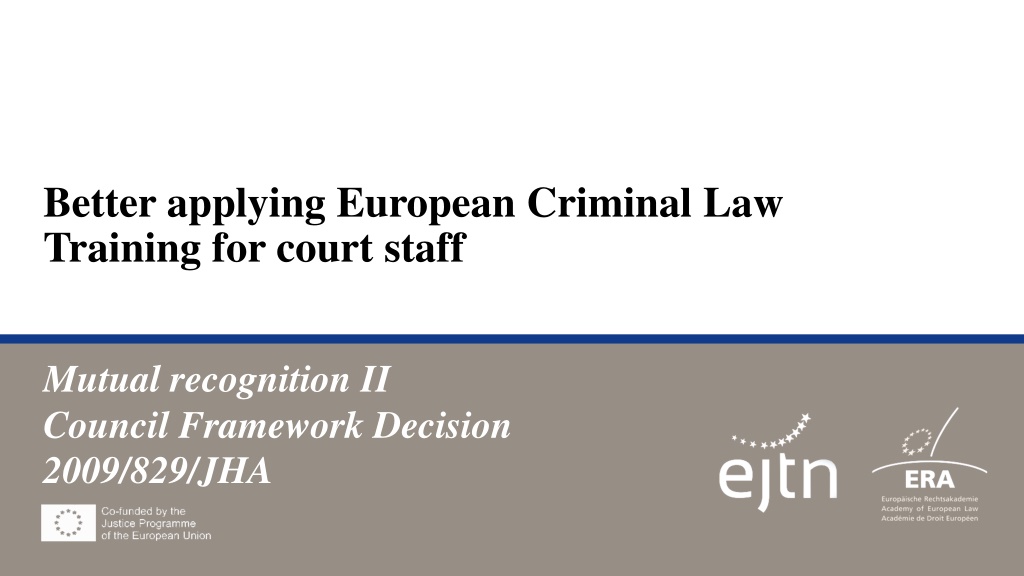


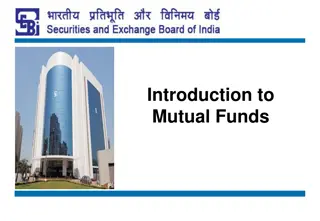


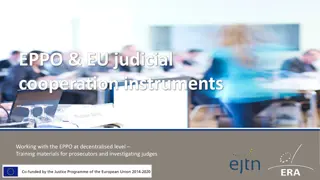


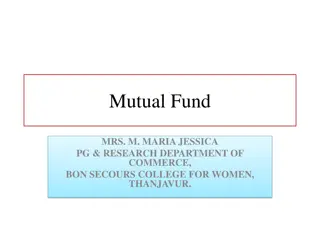

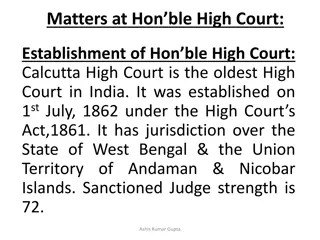

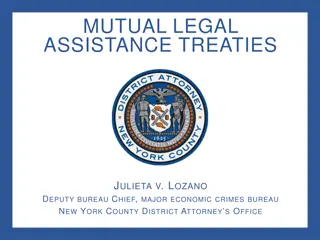

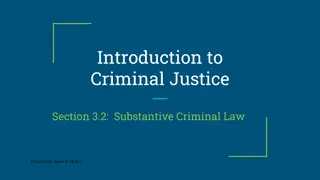

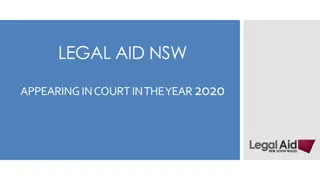
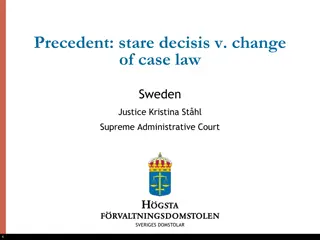
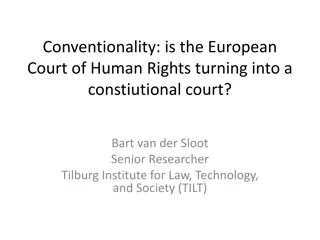
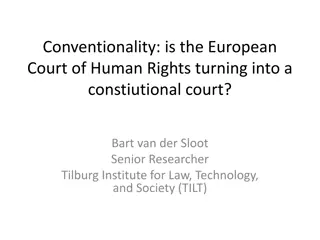
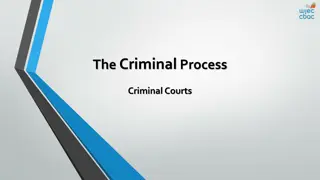
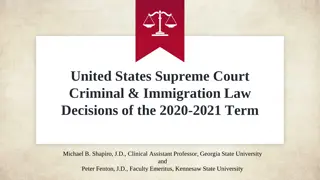
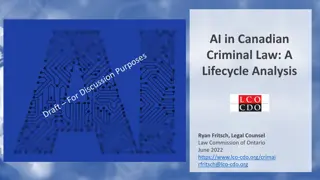
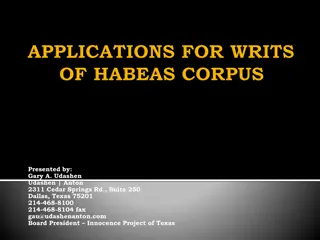
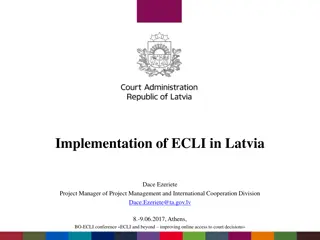
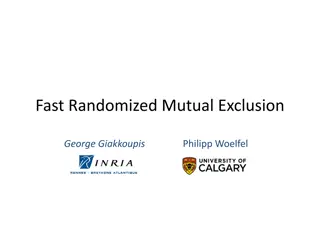
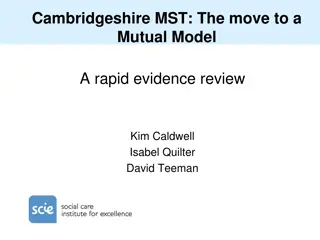

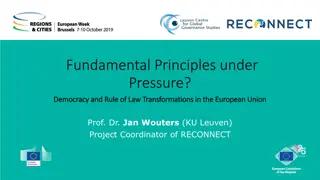

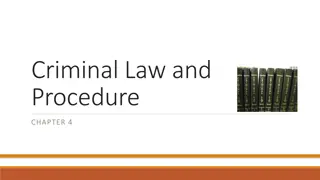
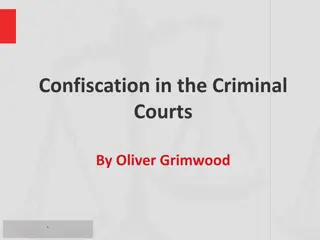
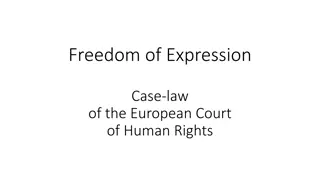
![Briefing on the Criminal Procedure Amendment Bill [B12-2021] to the Portfolio Committee on Justice and Correctional Services](/thumb/157093/briefing-on-the-criminal-procedure-amendment-bill-b12-2021-to-the-portfolio-committee-on-justice-and-correctional-services.jpg)
